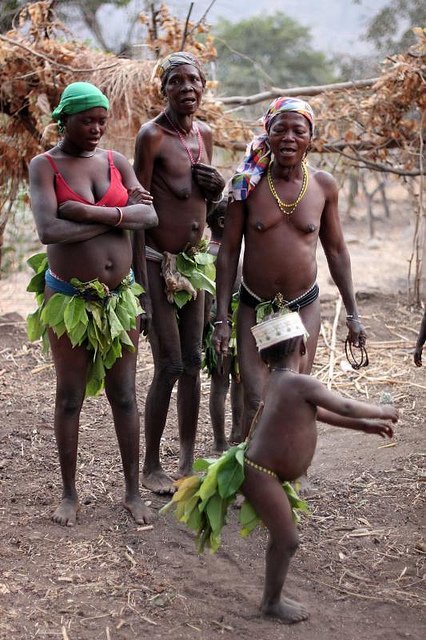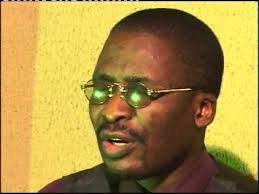One of the fiercest battles of the Nigerian civil war was fought in Ore, Ondo State Nigeria. Yorubas went on to coin the phrase "Oleku Ija Ore" to describe the fierceness of the battle at Ore.
The invasion of Ore by Biafrans under a Yoruba GOC shocked the West. Meetings upon meetings were taking place. Troops of the 11th Battalion from Iwo Road Barracks dug in.
There were just 32 of them, a platoon, commanded by Lt. Raphael Iluyomade, whose NMTC course six mate, Nasko, had started the war in Garkem. Obasanjo, as Two Area commander, knew the Yoruba were short of officers and men.
Banjo, Lt.Col Wale Ademoyega, Captain Ganiyu Adeleke, Oyewole and Lt. Festus Olafimihan were holed up in Biafra. Majors Folusho Sotomi, Olufemi Olutoye, Benjamin Adekunle, Olu Bajowa were the available senior officers.
Following them were Alani Akinrinade, Emmanuel Abisoye, James Oluleye, Yemi Alabi, Ayo Ariyo and Ola Oni.
Banjo discovered that taking the battle to Ore was more complex than taking an easy ride over the Mid-West. He could have grabbed Lagos, Gowon sensed that.
But Banjo was reminded of Afonja, the man who sold the Yoruba in Ilorin. At that time, he lost steam. That action eventually turned the Biafrans against him. Banjo retreated and made a speedy return to status quo.
That push to Ore gave the West enough reason to join forces with the North against Biafra. Its failure turned the non-Igbo speaking groups of the Mid-West against Biafrans.
On August 14, 1968 Nigerian forces intercepted Biafran forces in modern day Ondo State in Nigeria just 130 miles from the city of Lagos. The Biafrans were led by Lt. Col. Victor Banjo and Albert Okonkwo who was appointed by the Biafran leader Odemegwu Ojukwu. The Nigerians were led by Head of State Yakubu Gowon and General Murtala Mohammed. Biafra ordered the defense of their western border while the Nigerians ordered the defense of their mid-western region. Sometime in late August the Biafran government discovered that Col. Victor Banjo was negotiating with Nigerian general Murtala Mohammed. Col. Banjo was captured and transported to Enugu where he was executed by a firing squad. On September 19, 1967 Benin City was retaken by Nigeria but had lost many men in the conflict which the Biafran government was hoping for. On September 22, 1967 the Biafran troops in Nigeria fled to their capital of Enugu to help defend it against the invading Nigerian army. Due to the Nigerian capture of Benin City the battle was considered a tactical victory for the Nigerians but due to the great loss of men for the Nigerians it was considered a strategic Biafra/Benin victory.
The Battle of Ore (August 14 - September 17, 1967) was a military conflict between Nigerian and Biafran forces. The battle took place in the Ondo State of western Nigeria near present-day Benin City. This battle started out great for Biafran forces but they were eventually pushed back by Nigerian forces after the execution of Victor Banjo.
Background
On 1 October 1960 Nigeria became independent from the United Kingdom. The nation has three major ethnic groups: the Fulani and their Hausa counterparts, who are predominantly Muslim, inhabited the north; the Yoruba, who are a mix of Muslim and Christian, inhabited the south west; and in the south east are the Igbo, who were predominantly Christian, and retained their British influence which gave them the educational and economic advantage. In January 1966, a group of officers led by Nzeogwu, an Igbo, launched a military coup during which several political leaders were killed. In July 1966 the northerners, mainly the Fulani, led a counter coup and killed the Nigerian head of state Johnson Aguiyi-Ironsi, an Igbo. In the resulting chaos, Yakubu Gowon, a Christian from the Middle Belt, took charge and furthered the Anti-Igbo sentiment, which led to death and displacement of millions of Igbo.
Odumegwu Ojukwu grasped the opportunity and led a secession of south eastern Nigeria. On 30 May 1967 the Republic of Biafra was proclaimed. The Nigerian government refused to recognize Biafra by proclaiming "Southern Nigeria is a part of Nigeria and it will stay that way". On 6 July 1967 the Nigerian army invaded Biafra resulting in the Battle of Nsukka and ultimately the commencement of the Biafran War. On August 9, 1967 Biafran forces invaded Nigeria and successfully took the city of Benin City. Later in August Yakubu Gowon asked General Murtalla Mohammed to stop the Biafran invasion with his 2nd Division.
Battle
On August 14, 1968 Nigerian forces intercepted Biafran forces in modern day Ondo State in Nigeria just 130 miles from the city of Lagos. The Biafrans were led by Lt. Col. Victor Banjo and Albert Okonkwo who was appointed by the Biafran leader Odemegwu Ojukwu. The Nigerians were led by Head of State Yakubu Gowon and General Murtala Mohammed. Biafra ordered the defense of their western border while the Nigerians ordered the defense of their mid-western region. Sometime in late August the Biafran government discovered that Col. Victor Banjo was negotiating with Nigerian general Murtala Mohammed. Col. Banjo was captured and transported to Enugu where he was executed by a firing squad. On September 19, 1967 Benin City was retaken by Nigeria but had lost many men in the conflict which the Biafran government was hoping for. On September 22, 1967 the Biafran troops in Nigeria fled to their capital of Enugu to help defend it against the invading Nigerian army. Due to the Nigerian capture of Benin City the battle was considered a tactical victory for the Nigerians but due to the great loss of men for the Nigerians it was considered a strategic Biafra/Benin victory.
Aftermath
During the time of battle the Republic of Benin was captured by Nigerian troops. On October 4, 1967 the Biafran capital of Enugu was taken by Nigerian troops and the Biafran capital was moved to Umuahia. In May 1968 the Biafran stronghold of Port Harcourt was captured by Benjamin Adekunle and his 3 division of the Nigerian army. After the Capture of Port Harcourt Benjamin Adekunle started Operation OAU which was a draw for both sides but cost Nigeria 21,500 men. After Operation OAU the Biafrans were given $1,044,000 from all around the world. This let them buy more military supplies which let them regain the city of Owerri at the Capture of Owerri in 1968. On December 24, 1969 Nigeria captured the Biafran capital of Umuahia. On January 15, 1970 Biafra surrendered to Nigeria and rejoined the main federation.









0 Comments